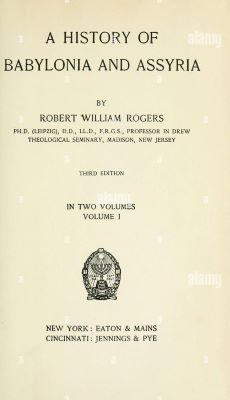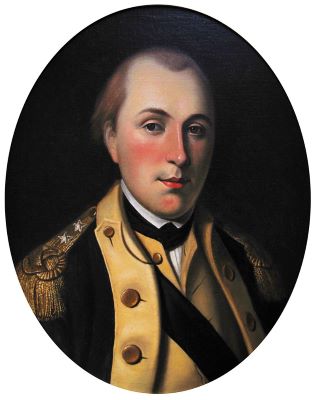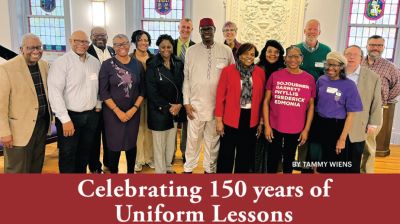
To follow-up on my previous blog on museum advocacy at the Federal level, I want to explore the possibility of history advocacy at the Federal level. In particular, I wish to call people’s attention to the National Coalition for History:
The National Coalition for History (NCH) is a consortium of over 50 organizations that advocates on federal, state and local legislative and regulatory issues. The coalition is made up of a diverse number of groups representing historians, archivists, researchers, teachers, students, documentary editors, preservationists, genealogists, political scientists, museum professionals and other stakeholders.
Since 1982, the NCH (formerly the National Coordinating Committee for the Promotion of History) has served as the voice for the historical community in Washington. The NCH seeks to encourage the study and appreciation of history by serving as a clearinghouse of information about the profession and as a facilitator on behalf of the interests of our diverse constituency.
The Executive Officers of the organization represent the leading history and social studies organizations in the country:
American Historical Association
National Council for the Social Studies
Organization of American Historians
The Executive Committee consists of leaders from multiple national organizations in the history field:
American Association for State and Local History
American Council of Learned Societies
American Political Science Association
Association for Documentary Editing
Council of State Archivists
Gilder Lehrman Institute of American History
HISTORY™
National Council for History Education
National Council on Public History
Society for Historians of American Foreign Relations
Society for History in the Federal Government
Society of American Archivists
Southern Historical Association
Clearly if there is to be history advocacy at the Federal level, this organization is the one through which it should be conducted. However, I must also add that the last annual report on its website is for 2020 and the last event on the membership events page is an annual conference from April 2020.
According to the NCH website:
A summary of our policy agenda, developed in conjunction with our constituent organizations. See our more detailed briefs below for further information on the individual issues.
For our archive of past advocacy issues, click here.
Public Access to Government Records and Information
Through legislation, regulation, and adequate funding for the National Archives, ensure that the public has the greatest possible access to federal government records and information.
Support the National Endowment for the Humanities
We urge Congress to maintain or increase funding for the National Endowment for the Humanities, and to reject President Trump’s efforts to eliminate this vital agency. [The website should be updated to reflect current activities]
Support the National Historical Publications and Records Commission
We urge Congress to maintain or increase funding for the National Historical Publications and Records Commission, and to reject President Trump’s efforts to eliminate this crucial program. [The website should be updated to reflect current activities]
Through legislation, policy, and especially funding, ensure that every K-12 student in America receives a high-quality history education.
Support the Institute of Museum and Library Services
We urge Congress to maintain or increase funding for the Institute of Museum and Library Services, and to reject President Trump’s efforts to eliminate this crucial agency. [The website should be updated to reflect current activities]
Ensure that efforts to preserve America’s historic sites, buildings, and artifacts have strong federal government support.
Support the Smithsonian Institution
We urge Congress to maintain or increase funding for the Smithsonian Institution.
Creating an American Museum of Women’s History
We urge Congress to support the creation of an American Museum of Women’s History (AMWH) as part of the Smithsonian Institution. This includes the appropriation of federal funds and the allocation of land and/or a building to house the museum.
According to the website of the Smithsonian Institution:
What is the Smithsonian American Women’s History Museum?
Decades in the making, the Smithsonian is building the American Women’s History Museum in our nation’s capital. The museum will recognize women’s accomplishments, the history they made, and the communities they represent.
So again, the website needs to be brought up-to-date.
Support the Library of Congress
We urge Congress to maintain or increase funding for the Library of Congress.
Ensure that oral historians remain free from Institutional Review Board oversight and other unnecessary and restrictive government regulation.
Senate Hearing Focuses on Presidential Records Act Reform
March 16, 2022
On March 15, the Senate Homeland Security and Governmental Affairs Committee convened a hearing to consider reforms to the Presidential Records Act (PRA), especially in light of recent revelations about the mishandling of records at the end of former President Trump’s term. The National Coalition for History (NCH) submitted testimony for the record urging the more >
Final FY 22 Budget for History, Archival and Education Programs
President Biden is soon expected to sign into law an omnibus appropriations bill which will fund the federal government for the approximately last six months of fiscal year 2022. Click here to access a chart showing how programs of interest to our community fared. It includes the budget for FY 22 and compares it with more >
The programs the NCH monitors are:
The National Archives and Records Administration (NARA)
The National Historical Publications and Records Commission (NHPRC)
The National Endowment for the Humanities (NEH)
K-12 history and civics programs at the Department of Education
The Title VI/Fulbright-Hays International Education programs
The Institute of Museum and Library Services (IMLS)
The National Park Services’ Historic Preservation Fund
The Library of Congress
The Smithsonian Institution
The Woodrow Wilson International Center for Scholars
On a national level, it should be possible to create a Federal level history advocacy program comparable to what the AAM just did for museums.
CONGRESSIONAL HISTORY CAUCUS
Perhaps, surprisingly, there is a Congressional History Caucus. I confess I have not heard of it in the news despite history being in the news especially at the state level. Officially, the Caucus does exist.
The caucus aims to provide a forum for members of Congress to share their interest in history and to promote an awareness of the subject on Capitol Hill. It is important for our community to be seen as a resource by Congress and we hope to build lasting relationships between Members of Congress and historians, archivists, teachers, students, genealogists, researchers, and other stakeholders in their respective districts. The History Caucus will increase NCH’s visibility and provide a network of supporters in Congress that we can reach out to when issues arise.
According to the website, some activities the History Caucus leadership has planned include:
- Lectures by prominent historians and policy makers to provide historical context and perspective on current and past issues.
I do receive emails announcing the upcoming 2022 programs under the name of the Washington History Seminar. But that entity is not part of the NCH.
A joint venture of the National History Center of the American Historical Association and the History and Public Policy Program of the Woodrow Wilson International Center for Scholars, the Washington History Seminar meets each week, January to May and September to December. The Washington History Seminar aims to facilitate understanding of contemporary affairs in light of historical knowledge of all times and all places and from a variety of perspectives.
These seminars then are not organized by the NCH. I am receiving the notices through the auspices of my membership with the AHA.
To summarize, my overall impression, is that NCH is not ready to be a grassroots history advocacy organization with a program similar to the one just conducted by AAM. Clearly there are areas of overlap in the potential advocacy items between these two organizations. However, I think this organization would need to bulk up before it could undertake an effort for a national grassroots history mission. In addition, there is nothing in its advocacy agenda that is specifically geared towards the needs of the traditional mom-and-pop historical organization which exist in municipalities across the country. Since the history community does not advocate much at the state level, it should be no surprise that it has no national voice either.





